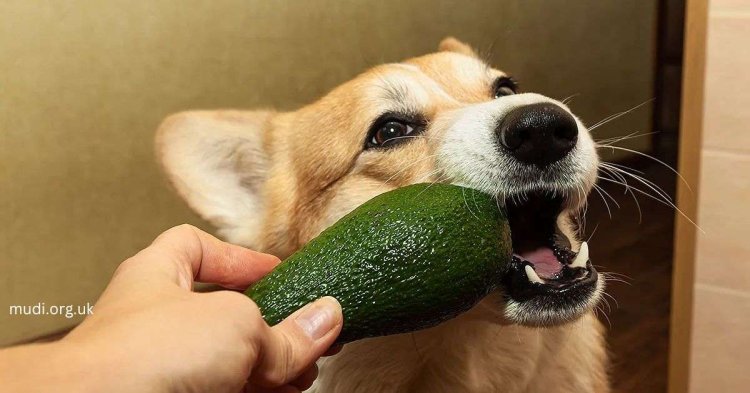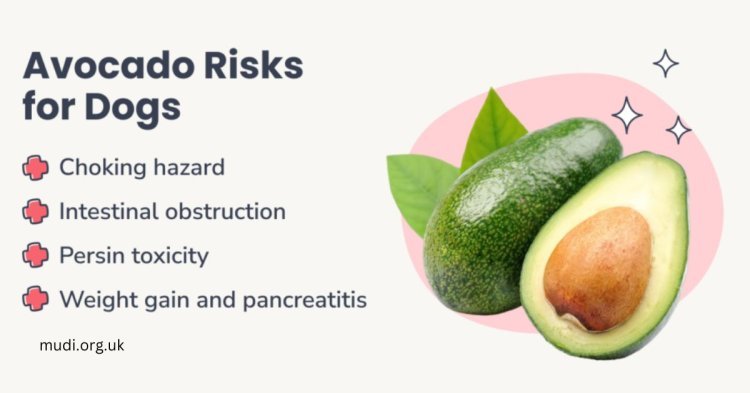Can Dogs Eat Avocados? The Complete Guide for Dog Owners
Wondering if dogs can eat avocados? Find out the health benefits, risks, and expert tips on feeding avocado to your dog in this comprehensive guide.
As a responsible dog owner, you want to share healthy treats with your furry friend. But with so many human foods out there, it’s essential to know which ones are safe and beneficial for your dog. One food that raises a lot of questions is avocado. Known for its rich flavor and impressive nutritional profile for humans, is it safe for your dog? In this article, we’ll explore whether dogs can eat avocados, the risks involved, and tips for safely incorporating avocado into your dog’s diet.
The Nutritional Benefits of Avocados for Dogs
Avocados are packed with nutrients that can offer several benefits for your dog when consumed in moderation. Here are some of the key reasons why some dog owners consider feeding avocados to their pets:
1. Healthy Fats for Coat and Skin
Avocados contain monounsaturated fats, which are beneficial for maintaining a shiny and healthy coat. These fats also help promote healthy skin, especially for dogs with dry or irritated skin.
2. Rich in Essential Vitamins
Avocados are packed with essential vitamins like A, C, E, and K. These vitamins help support a dog’s immune system and improve overall health. The antioxidants found in avocados can also help to reduce inflammation and support joint health.
3. Fiber for Digestion
Fiber is important for digestive health, and avocados provide a good source. It helps regulate bowel movements and prevent constipation, which is especially helpful for dogs prone to digestive issues.
Is Avocado Safe for Dogs? Potential Risks to Consider
While avocados offer health benefits, they also come with certain risks. It's important to be aware of these risks and ensure that you are feeding your dog avocado safely.
1. The Pit and Skin Are Toxic
While the flesh of the avocado is generally safe for dogs, the pit and skin can be dangerous. The pit poses a choking hazard and can lead to a digestive blockage if swallowed. The skin contains persin, a substance that can cause gastrointestinal distress and other symptoms of toxicity in dogs. It's crucial to always remove the pit and skin before offering avocado to your dog.
2. High Fat Content and Pancreatitis
Avocados are high in fat, which can contribute to pancreatitis in dogs if consumed in large quantities. Pancreatitis is an inflammation of the pancreas, which can lead to severe discomfort and potentially serious health issues, such as vomiting, diarrhea, lethargy, and loss of appetite. If you decide to feed your dog avocado, always do so in moderation.
3. Allergic Reactions and Digestive Issues
Every dog’s digestive system is different. Some dogs may experience allergic reactions or digestive issues, such as vomiting, diarrhea, or stomach discomfort, after eating avocado. It’s important to observe your dog for any unusual symptoms after introducing avocado to their diet. If any negative reactions occur, stop feeding avocado and consult with your veterinarian.
How to Safely Feed Avocado to Your Dog
If you’ve decided to feed your dog avocado, there are some important safety precautions to follow to ensure they benefit from this healthy treat:
1. Only Feed the Flesh of the Avocado
When feeding avocado to your dog, always remove the pit and skin and feed only the flesh of the avocado. The flesh is rich in healthy fats, vitamins, and fiber, and it’s the safest part of the avocado for your dog to consume.
2. Feed in Small Portions
Since avocados are high in fat, it's essential to feed them in small amounts. Start with a small portion—about 1 teaspoon for small dogs and up to 1 tablespoon for larger dogs. Make sure to observe your dog after giving them avocado to ensure they don’t experience any digestive issues.
3. Avoid Processed Avocado Products
Never feed your dog processed avocado products like guacamole or avocado dip, as these often contain ingredients that can be toxic to dogs, such as garlic, onions, salt, and spices. These ingredients should be completely avoided, as they can cause serious health problems for your dog.
Frequently Asked Questions About Dogs Eating Avocados
- Can dogs eat avocado pits?
No, avocado pits are a choking hazard and can cause a digestive blockage if swallowed. Always remove the pit before feeding your dog avocado.
- Can puppies eat avocado?
Puppies have sensitive stomachs, and their digestive systems are still developing. It’s best to avoid feeding avocado to puppies, especially without consulting a veterinarian first.
- Is avocado safe for all dog breeds?
Most dogs can enjoy avocado in moderation, but some breeds may be more sensitive to high-fat foods. If you’re unsure whether avocado is safe for your dog, consult your veterinarian for guidance.
- What should I do if my dog eats avocado skin or pit?
If your dog eats avocado skin or pit, contact your veterinarian immediately. Keep an eye out for symptoms like vomiting, diarrhea, or lethargy. Early intervention is important to avoid complications.
Conclusion:
In summary, yes, dogs can eat avocados, but with a few important precautions. When fed in moderation, avocado can offer several health benefits, including healthy fats, vitamins, and fiber. However, it's essential to remove the pit and skin, as they can pose serious risks to your dog’s health. Always feed your dog small portions and monitor for any signs of digestive upset or allergic reactions.
If you’re ever in doubt about whether a particular food is safe for your dog, consult with your veterinarian. They can provide personalized advice to ensure your dog enjoys a balanced and healthy diet.
What's Your Reaction?













